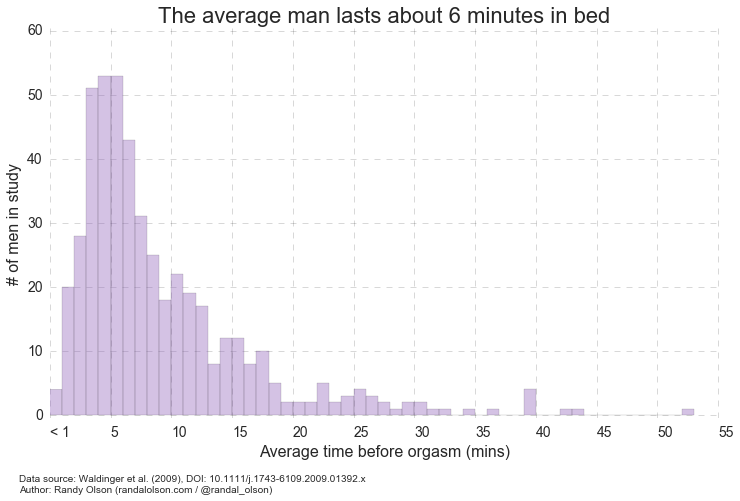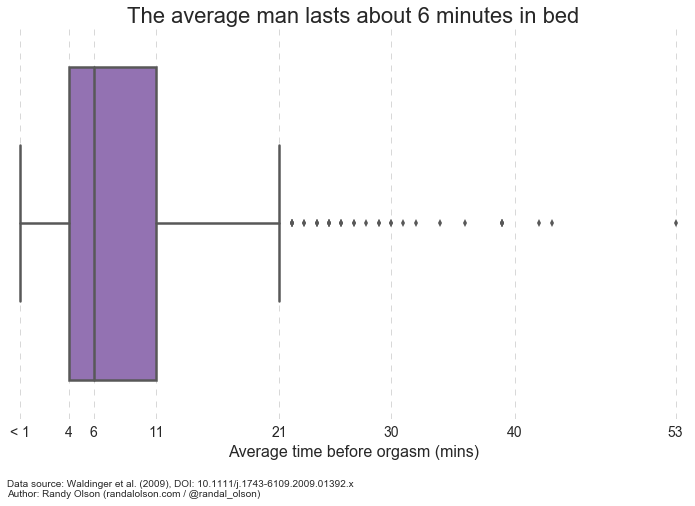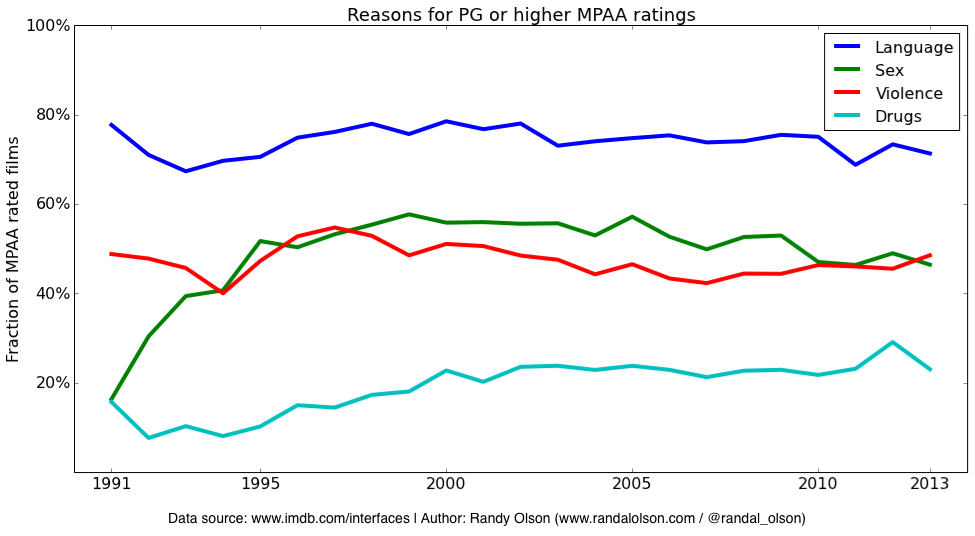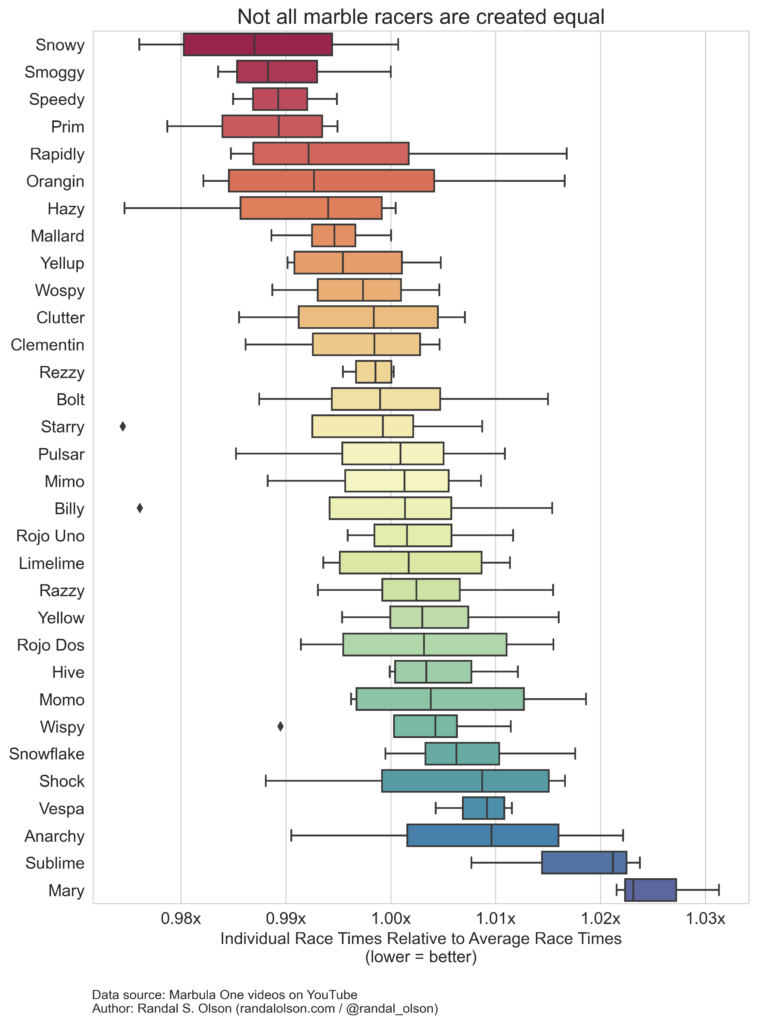How long does the average man last in bed?
A couple weeks ago, I ran across a research paper that inadvertently answered one of those awkward questions that so few people get the chance to talk about: How long does the average man last in bed? I was particularly interested in this study because men's prowess in the bedroom is often exaggerated, and this study provided an opportunity to shed some light on the truth. The study is (sadly) locked behind a paywall, so I'll do my best to reproduce the results here.
You see, these researchers were actually studying premature ejaculation. To do so, they recruited about 500 random heterosexual couples from The Netherlands, Spain, Turkey, the UK, and the US and asked them to track the duration of their sexual encounters using a timer and diary. The researchers asked the couples to start the timer as soon as vaginal penetration occurred, and stop the timer as soon as the man ejaculated. Quite romantic, as you might imagine.
After 4 weeks of stop watches and sex diaries, the researchers followed up with the couples to collect the diaries and ask them various demographic questions. Below, I've plotted the distribution of how long each man lasted before orgasming (averaged over all his encounters).
To provide a more succinct view of the data, I also created a box plot to summarize the distribution:
The average (median) time before orgasm was about 6 minutes, and ranged from a blissful 6 seconds to a marathon-paced 53 minutes. The majority of men lasted between 4 to 11 minutes, with anyone lasting longer than 21 minutes being considered an outlier.
What I found particularly interesting about this study was the men's tendency to overestimate the duration of their sexual encounters: According to the authors, the men's estimates averaged about 1.9 minutes longer than they really were---about a 31% overestimation over the 6-minute average---which really highlights our tendency to overestimate our performance in the bedroom.
So, there we have it. Our collective fascination with hours-long romps in the bedroom doesn't really hold up in the data, and most couples are probably quite happy for it. Hopefully studies like this one will help us ground our expectations in reality, rather than trying to live up to fantasy.
If you're interested in reading more about the study and don't have institutional access, I hear that a certain science hub might have a copy laying around.
Tags
Related Posts

Dr. Randal S. Olson
AI Researcher & Builder · Co-Founder & CTO at Goodeye Labs
I turn ambitious AI ideas into business wins, bridging the gap between technical promise and real-world impact.




